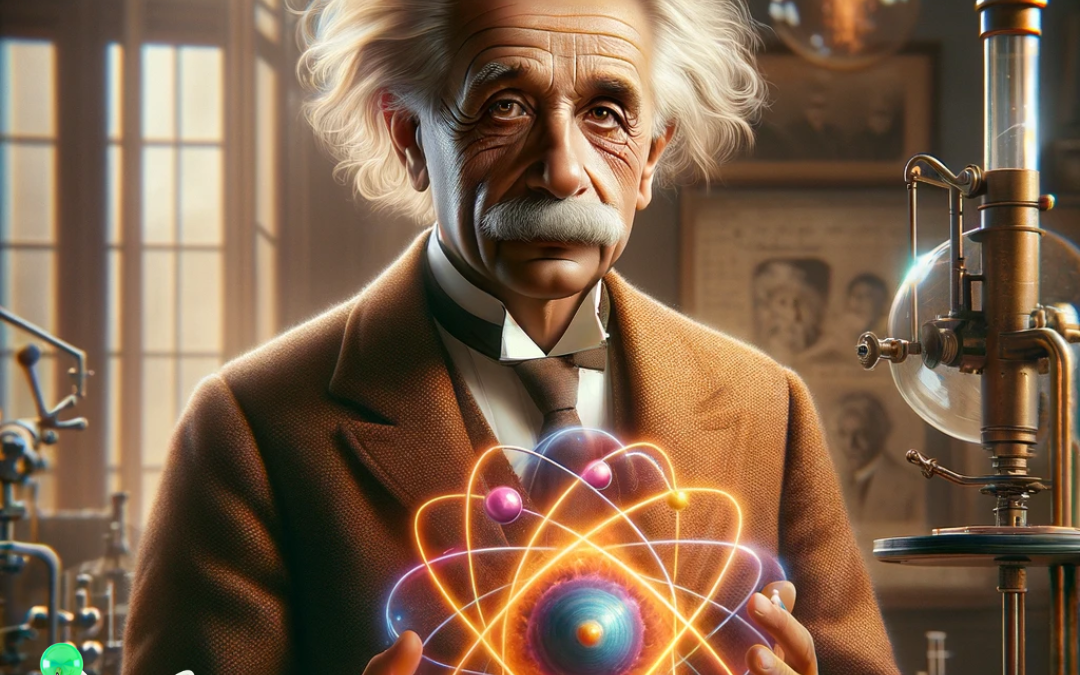In the chambers of scientific history, few names shine as brightly as Albert Einstein’s. His profound contributions to our understanding of the universe altered the course of physics and laid the groundwork for a new era of atomic science.
At the heart of Einstein’s legacy lies his seminal work on the theory of relativity, encapsulated by the iconic equation E=mc^2. This simple yet revolutionary equation proposed a direct relationship between mass (m) and energy (E), with the speed of light (c) squared acting as the proportionality constant. It suggested that mass could be converted into energy and vice versa – a concept that was radical for its time and opened a new window into understanding the atom’s immense potential.
Einstein’s insights into the atom’s nature extended beyond the conversion of mass to energy. His work on the photoelectric effect, for which he won the Nobel Prize in Physics in 1921, provided critical evidence for the quantum theory. By demonstrating that light could be both a wave and a particle, Einstein challenged classical physics and laid the groundwork for the development of quantum mechanics. This understanding was crucial in later developments regarding the atomic structure and the behavior of subatomic particles.
Einstein’s theories also had profound implications for nuclear physics, particularly in understanding atomic nuclei’s binding energy. While he did not directly participate in the development of nuclear fission, his equation implied that vast amounts of energy could be released from the nucleus, leading to advancements in nuclear energy and technology.
Beyond nuclear physics, Einstein’s general theory of relativity transformed our understanding of gravity, space, and time. His predictions about the warping of space-time by gravity have been confirmed by numerous experiments and observations, including the bending of light by gravity and the recent detection of gravitational waves.
Einstein’s impact on the scientific community was not limited to his theories. He was a vocal advocate for scientific inquiry and intellectual freedom, influencing generations of physicists and thinkers. His philosophical reflections on science and its role in society have left an indelible mark on how science is perceived and conducted.
In conclusion, Albert Einstein’s impact on atomic science and our broader understanding of the physical universe is immeasurable. His theories challenged existing paradigms and opened new pathways for exploration, forever changing how we perceive our world. As we continue to delve into the mysteries of the atom and the cosmos, Einstein’s legacy remains a guiding light, inspiring continuous inquiry and discovery in the quest to understand the fundamental nature of reality.

